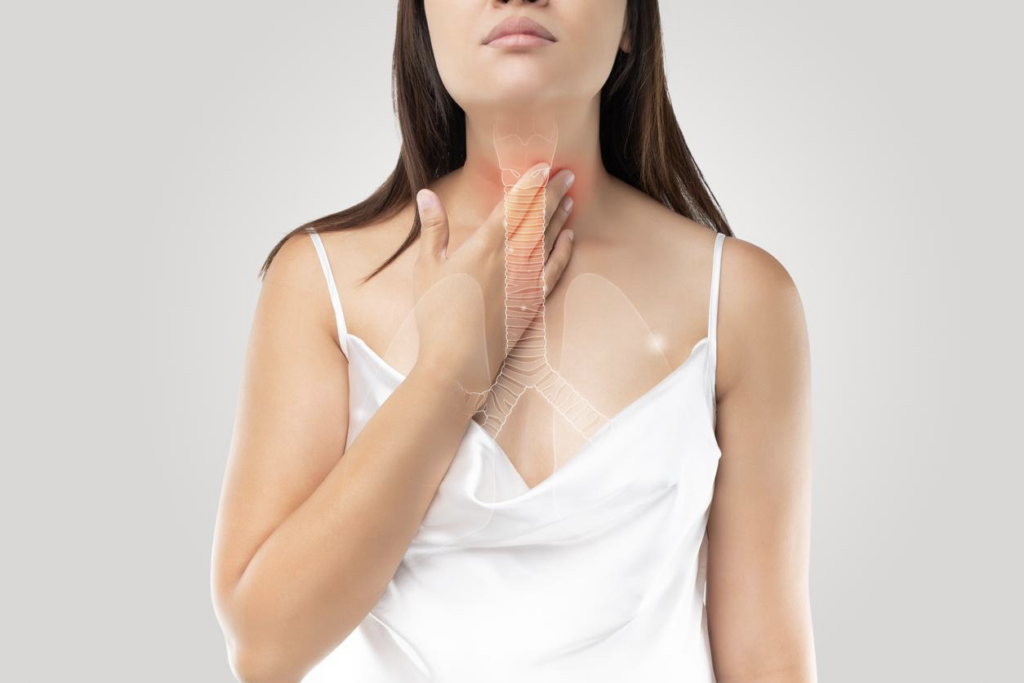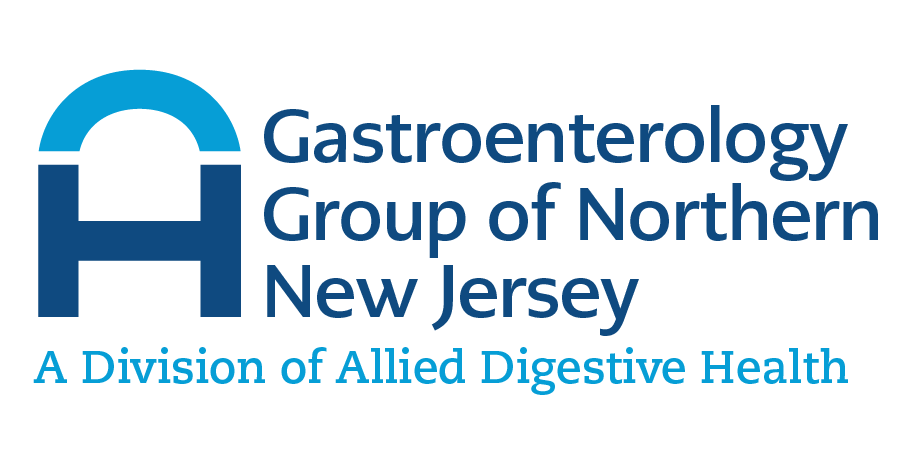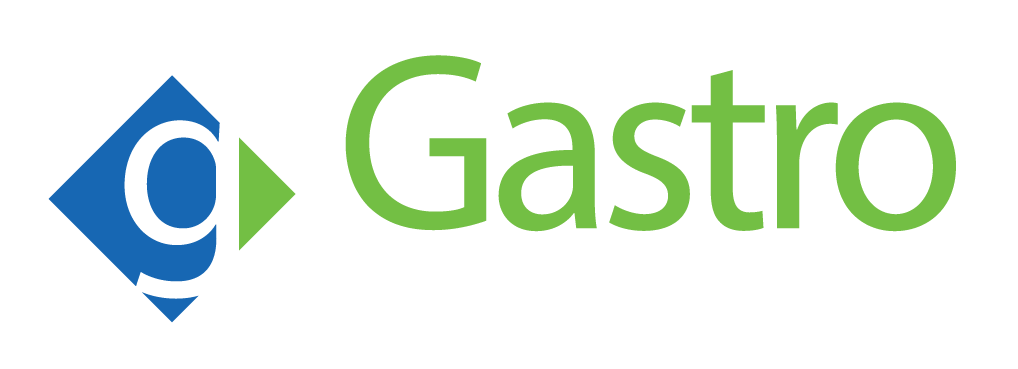
Many people experience tightness in the throat but never fully understand it. It differs from other types of throat pain like sore throat related to the common cold. A tight throat feels like your passageway is narrowed or blocked.
In most cases, a tight throat can lead to difficulty breathing or swallowing. This is because your throat anatomy includes the esophagus and the trachea.
Apart from the throat, anatomical structures that can lead to throat tightness include connective tissue, muscles, and thyroid glands.
Equally important, the causes of throat tightness differ in terms of severity. It ranges from life-threatening allergic reactions and acid reflux to panic attacks, which may be awful experiences but not medically emergent.
What Is an Esophageal Stricture?
The throat also includes the esophagus, the tube responsible for carrying food back from the throat into the stomach. Esophageal stricture is the abnormal tightening or narrowing of the esophagus. People with esophageal stricture will find it hard to swallow food, especially solid. Most people feel like they have something stuck or frozen in their throat. Sometimes, you can find it hard to take fluids.
The most common causes of esophageal stricture are digestive disorders like gastroesophageal reflux disease (GERD). It can also result from other medical conditions that affect your digestive tract.
An esophageal stricture occurs rarely but can affect people at any age, especially past the age of 40.
Strictures can occur in two types:
- Cancerous: These structures can worsen very fast.
- Benign (not cancerous): Benign stricture will progress slowly and develop over time.
Symptoms of Esophageal Stricture in the Throat
The most common symptom of esophageal stricture is dysphagia or difficulty in swallowing. It can manifest as a sensation of food stuck in the passage, chest, or the upper abdomen. The common signs of an esophageal stricture include difficulty swallowing pills or solid foods. Severe cases of esophageal stricture may even lead to challenges in ingesting beverages.
Other common stricture symptoms include:
- Difficulty swallowing food
- Difficulty drinking water
- Weight loss
- Frequent heartburn
- A burning sensation on the throat
- Inflammation
- Weight loss
- Frequent choking episodes
It is best to seek medical attention immediately if you feel any of these symptoms. Your doctor will diagnose the conditions before your structure can get severe and cause dehydration or malnutrition.
Diagnosis
Diagnosing esophageal stricture usually takes more than one test. Here are some of the tests for esophageal stricture:
- Esophagoscopy: The test involves using an esophagoscope camera to visualize your esophagus. The doctor can perform it when you are awake by passing the thin camera through your nose in the office.
- In extreme cases, you may need to go under sedation in an operating suite, and the camera will go into your esophagus through your mouth. The doctor will visualize the entire esophagus and evaluate its condition in both cases.
- Esophageal Manometry: This test helps measure rhythmic muscle contraction, coordination, and force exerted by muscles during swallowing.
The doctor will use a thin, flexible tube with sensors and push it through the nose down into the esophagus and the stomach to measure these contractions. Patients will take small sips of water and swallow on command during the test.
Flexible Endoscopic Evaluation of Swallowing (FEES)
A FEES test occurs by examining how food and liquid pass through the throat. The doctor will pass a small flexible fiber optic through your nose and hold it just above your larynx to view the swallowing process.
Modified Barium Swallow Study (MBS)
The test involves swallowing several substances coated with barium to enable the examiner to determine how well the substances move from your mouth, pharynx, and esophagus. The test shows if the upper esophageal sphincter relaxes or not as the food goes through your duct.
Treatment
After diagnosis, the doctor will recommend a treatment plan to alleviate the tightening. The most common treatment is esophageal dilation, where a doctor uses a balloon or dilator to widen the esophagus.
Before the procedure, the doctor will give you sedatives to relax your body and numb your throat to ensure you don’t feel any pain.
The doctor will then pass an endoscope from your throat through into the esophagus. After, they will insert a dilator or balloon to stretch your esophagus to its normal size.
If the doctor confirms you have GERD, you will receive medications to decrease the production of acid in the stomach. Doctors may use metal esophageal stents to open your esophagus for complex structures.
Other treatment options include:
Medical Management in the Throat
A stricture related to gastroesophageal reflux disease (GERD) will require reflux medications.
Feeding Tube
In severe cases, the stricture can lead to the inability to eat or drink properly and serious issues with maintaining proper nutrition. For these cases, you may require a feeding tube.
After a successful treatment, your doctor may suggest you avoid taking food, drinking, or driving for some time. You may also receive medications to control your stomach acid from home. According to the severity of your condition, you may need to create a schedule of follow-up visits from your doctor.
GERD & Acid Reflux
Gastroesophageal reflux disease (GERD) is common, especially among individuals aged 30-39. In most cases, it can cause acid reflux in the esophagus that can reach the back throat. This will lead to heartburn, coughing, sore throat, hoarseness, and sometimes, throat tightness.
Treating these symptoms includes using antacids such as Tums (calcium carbonate) to alleviate heartburn, but they won’t be effective when you have severe symptoms such as throat tightening.
Other medications like proton-pump inhibitors (omeprazole, pantoprazole) or H2 blockers (famotidine, cimetidine) can also help reduce the acid levels and facilitate the repair of esophageal tissues. While you can get these medications over-the-counter, it is best to consult a healthcare provider before using them.
Severe cases of GERD may require treatment with surgery. The doctors will dilate the esophagus using endoscopy to enhance swallowing or use other treatment methods like fundoplication.
Find a Throat Expert Near You
Due to the complexity of throat tightness, it would be best to consult A gastroenterologist immediately if you experience any above symptoms. At Allied Digestive Health, we have a team of board-certified doctors in gastroenterology and hepatology. Contact us today to consult for any issues related to digestive systems.
Footer
© All Rights Reserved 2021


